Sabina Bajri
Sabina Bajri is a second year student in the Integrated Civil Law and International Development and Globalization program at the University of Ottawa. Sabina is interested in many legal issues such as Aboriginal law and issues related to people living with mental health problems. It is her strong interest in social justice that led her to join the Research Chair in Mental Health and Access to Justice. It is also what encouraged her to get involved in the Interdisciplinary Social Law Clinic and to take on the position of Spokesperson for the Aboriginal Law Circle at the University of Ottawa.
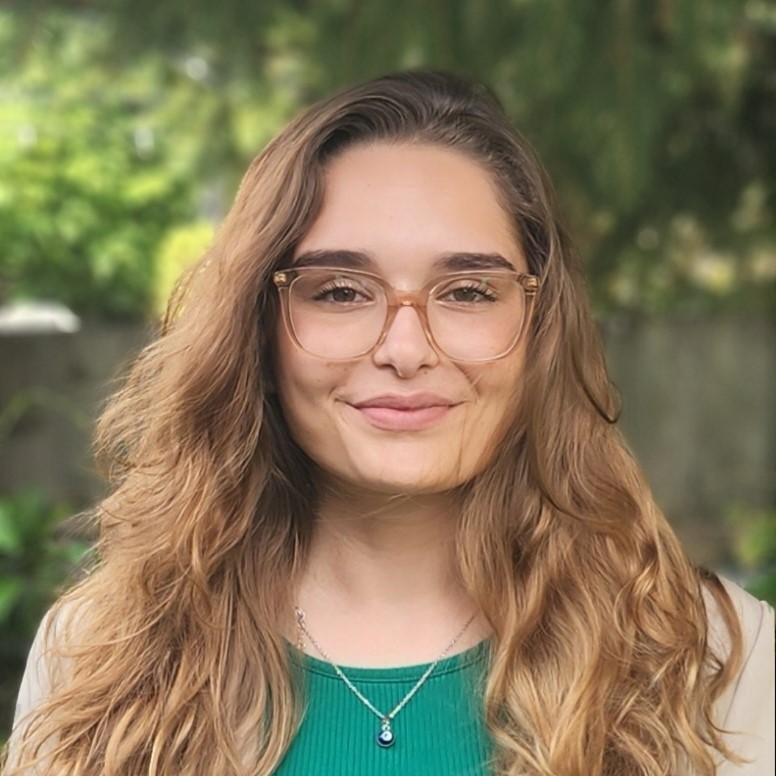

Marie Beyrouti
First person concerned (user) of mental health services in the public and private network. Activist in various mental health organizations in Montreal. Worked in the field of communications (writing, researcher, coordinator, event organization, documentaries, etc.) for over 45 years in the public network and the media, in Montreal and Ottawa.
Member of the CIUSSS Centre sud mental health citizen action committee in Montreal: "Le Gare". Member of the Vécu Gam Committee and member of the Committee on the website "Avec votre expertise", on the withdrawal of psychotropic drugs, at the Regroupement des ressources alternatives en santé mentale du Québec (RRASMQ). Participated in several documentaries, articles and research studies on art and mental health and on the voice of the first people concerned (ppc) in mental health, organized by Action autonomie in collaboration with the TELUQ, or by the Erasme research team, Prise 2 and the RRASMQ. Member of the "Aging and Mental Health" Committee of Action autonomie, an advocacy organization in the Montreal area. Member of the "Health without prejudice" Collective on diagnostic masking, led by Action Autonomie, RRASMQ, Camée and Prise 2. Former facilitator of workshops on medication autonomy at Rebond, an organization "by, for and with" mental health. Former member of the Table régionale des ressources en santé mentale du territoire du CIUSSS du center sud.
Florence Brosseau
Currently a candidate for the Master's degree in Law and completing her thesis at the University of Ottawa, Florence completed her Bachelor degree in Law (LL.B.) at UQAM and her professional training at the École du Barreau du Québec in 2019.
Her research experiences are mainly in the fields of criminal and psychiatric law. As such, Florence has worked on the non-use of the rights of accused individuals in the penal and criminal system. She also worked as a student researcher in the Mental Health and Justice Project of the Access to Law and Justice (ADAJ) research consortium, where she had the opportunity to study the judicial practices of the Mental Disorders Review Board (MDRB). In addition to her research experience, Florence interned during the 2018-2019 year with an administrative judge at the MHRC and worked as a teaching assistant in criminal law at UQAM.
These experiences have shaped her research interests, which revolve around the interface between law and psychiatry, epistemic injustices and engaged pedagogy. Her master's thesis will focus on the experiential knowledge of individuals declared not criminally responsible on account of mental disorder (NCRMD) at the Quebec Review Board. More specifically, her research project aims to study the uses that the tribunal makes of this knowledge as well as the epistemic injustices that may be reproduced within this space. Florence is supported by the Social Sciences and Humanities Research Council of Canada (SSHRC) (2019-2020) and the Fonds de recherche du Québec - Société et culture (FRQSC) (2020-2021).

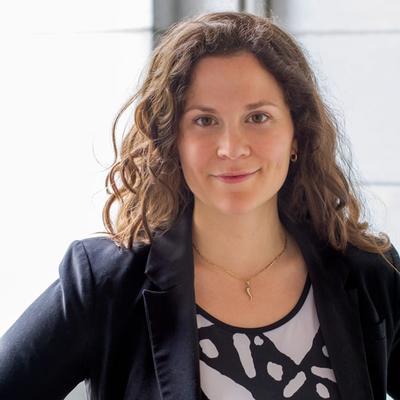
Valérie Costanzo
Valérie P. Costanzo is a doctoral candidate at the Faculty of Law, Civil Law Section, at the University of Ottawa. She holds a bachelor's degree and a master's degree in law from the Université de Montréal and has been a member of the Quebec Bar since 2016. She has practiced primarily as a family litigation lawyer, representing both parents and children. Her master's thesis, conducted under the direction of Professor Alain Roy, dealt with the idea of a unified family court in Quebec. Her doctoral thesis, directed by Professor Emmanuelle Bernheim, will present the results of an ethnographic research of the judicial experience of children represented by lawyers in a youth protection context and in a family law context, in Quebec and Ontario. She teaches as a lecturer in human rights and family law at the Université du Québec à Montréal.
Member of the Interdisciplinary Research Laboratory for Child Rights, Valerie is also interested in the rights of children and adolescents in a mental health context.
Anne-Laure Donskoy
Activist and user researcher in medical-social sciences. Involved since the early 90's in the psychiatric survivors' movement, she came to medical research through her experience as a mental health patient. Her interests combine psychological and political aspects of the medical-social sciences, in particular human rights, ethical issues and active participation of users in medical-social research. She has participated in research studies as a subject, as a co-researcher and has coordinated a team of patient-researchers. She has published and co-published a number of articles on these topics and has contributed to work related to patients' rights in psychiatry. Today, she is also a PhD student in Gender and Policy Studies at the University of Bristol in the UK with a study based on her political experience related to Brexit. She has been living in the UK since 1986 and is the consenting slave of a small grey panther with green eyes.

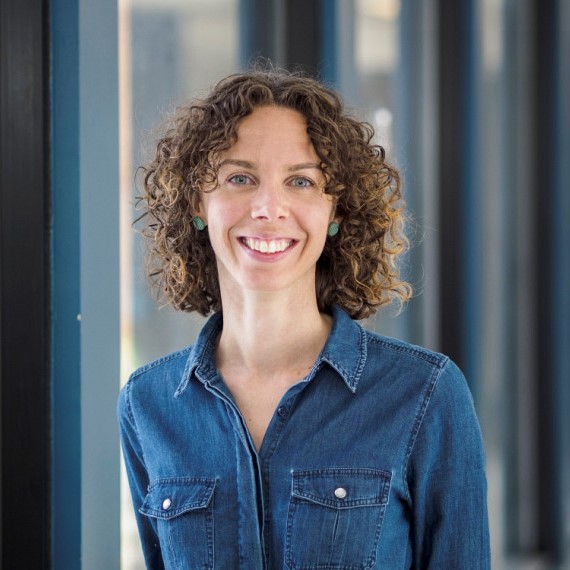
Véronique Fortin
Véronique is a professor at the Faculty of Law of the Université de Sherbrooke. Her work focuses on the social control of marginalized people, specialized courts and ethnography in law. In recent years, she has conducted research projects on justice and mental health support programs, on punishment in the social assistance system, and on the punishment that remains after decriminalization.
Guillaume Ouellet
Guillaume Ouellet is a researcher at the Centre de recherche de Montréal sur les inégalités sociales, les discriminations et les pratiques alternatives de citoyenneté (CREMIS) and an associate professor in the Department of Sociology at UQAM. He is conducting an action-research program on barriers to the social integration of people dealing with mental health issues or in a disability situation. More generally, he is interested in the way in which normative injunctions of autonomy and individual responsibility, which run through all forms of intervention, relentlessly call on the contemporary individual to assume the figure of the capable and rational subject. He has numerous peer-reviewed scientific contributions (articles, book chapters, local and international conferences) as well as several knowledge transfer activities (presentation of results, seminars, training). His expertise on the contact of different populations with the criminal justice system is recognized by both the academic and practice communities.
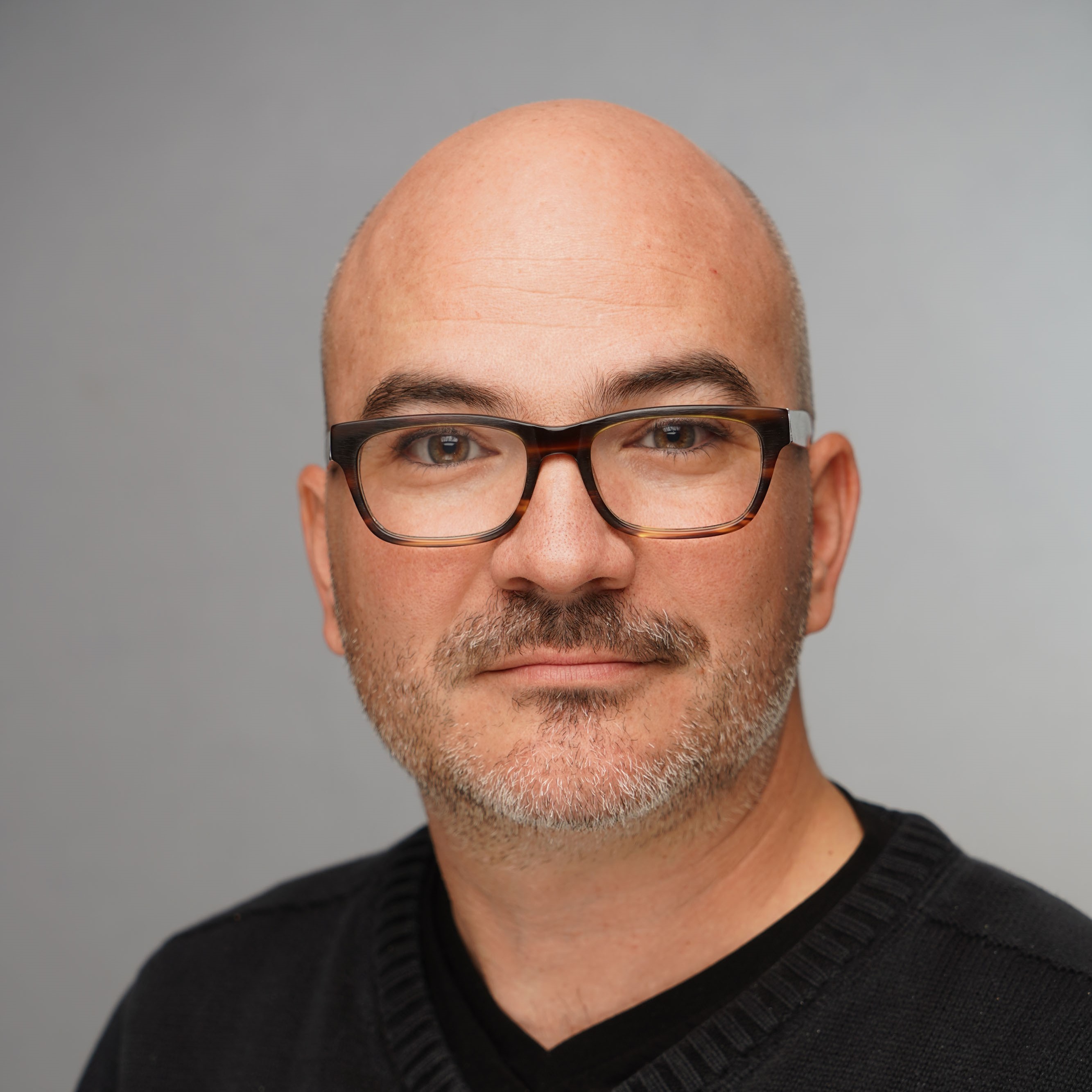
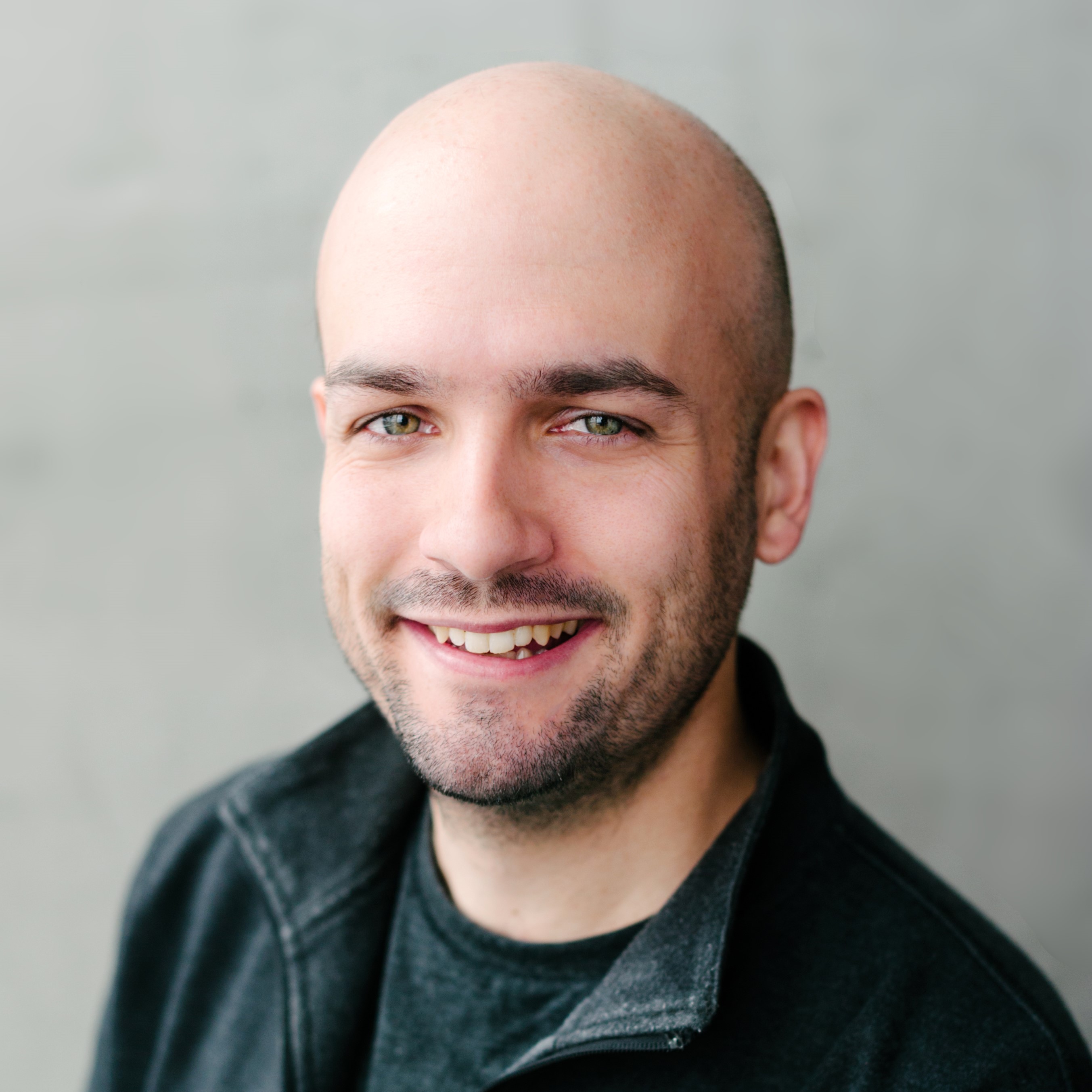
Pierre Pariseau-Legault
Pierre Pariseau-Legault is a professor and researcher in the Department of Nursing at the Université du Québec en Outaouais. He has expertise in forensic nursing and is also interested in the judicialization of social problems. His research focuses on human rights issues in mental health, support and accompaniment interventions in the context of marginalization, and the exercise of clinical judgment in a medical-legal context. He teaches psychiatry, crisis intervention and clinical ethics to future nurses and nurse practitioners.
Doris Provencher
Doris Provencher has been working in the field of mental health advocacy for 30 years. Since 2002, she has been the Executive Director of the Association des groupes d'intervention en défense des droits en santé mentale du Québec (AGIDD-SMQ).
She is a strong advocate for empowerment and a collective voice for people living with mental health issues.
She was one of the first trainers for L'Autre coté de la pilule, a critical training program on psychotropic drugs, guided with respect to human rights. For more than 20 years, this training has allowed Ms. Provencher to meet with thousands of people directly concerned by this issue throughout Quebec.
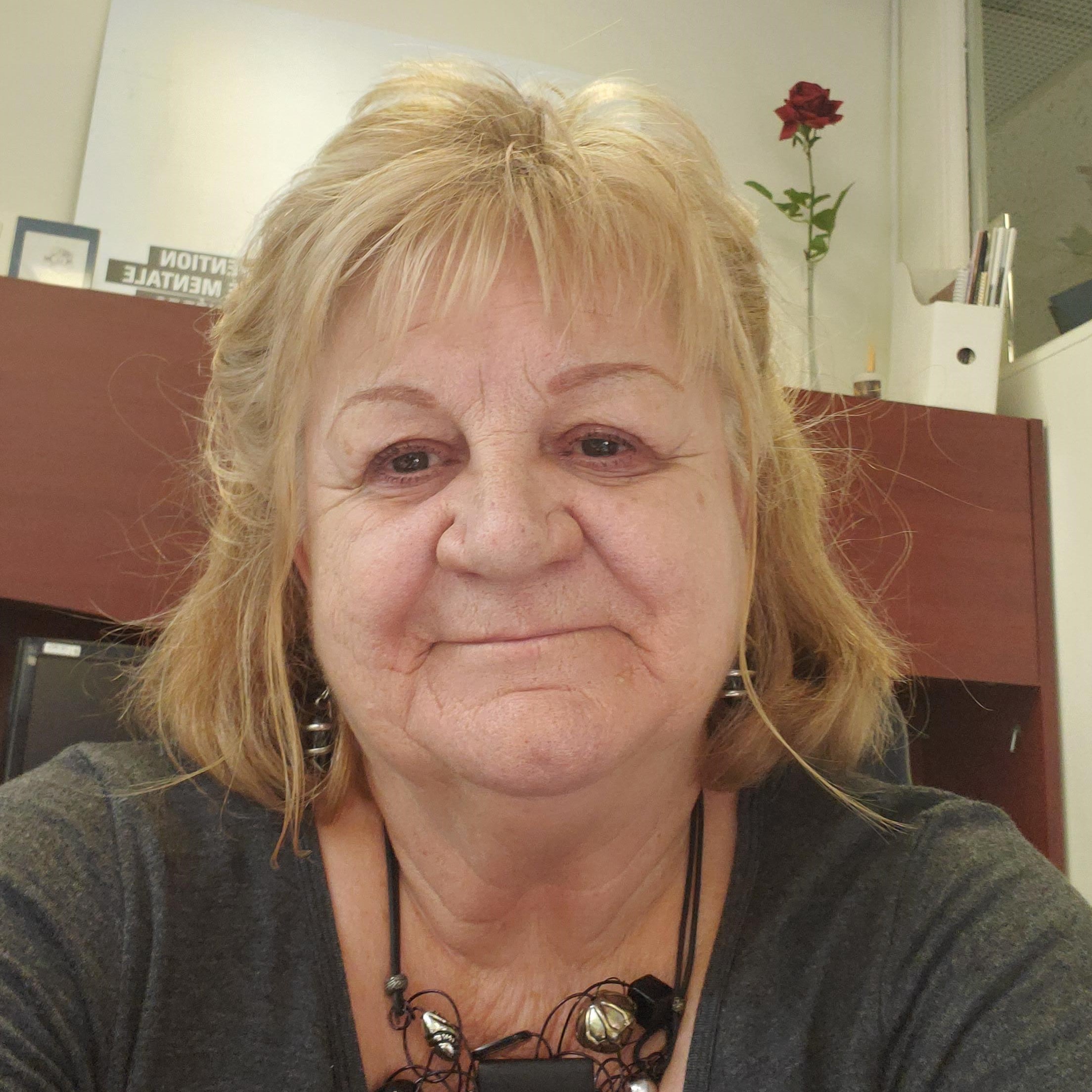

Marianne Tétreault
Marianne is a Master of Laws with thesis (LL.M) student at the University of Ottawa. A member of the bar since 2022, she completed her Bachelor of Laws (LL.B) in 2021 at the University of Sherbrooke. Marianne's research focuses on human rights, specifically on the consent of minors aged fourteen and over to care required by their mental health condition. She is also interested in children's rights and ethical issues in the health field.
As a citizen member of the Estrie Consultation Forum of the Health and Welfare Commissioner and a member of Arrimage Estrie, Marianne is committed to the advancement of and respect for the rights of users of the Quebec health care system.
AM Urli
I am a criminology student and researcher. My epistemological stance is constructivist. I am finishing my bachelor's degree in criminology and feminist and gender studies. As a poet at heart, I seek to bring out the human poetry in the testimonies in order to raise public awareness of mental illness and to blur the boundaries between the normal and the insane. I am concerned about the excessive pathologizing of human behavior and try to understand the experience of psychiatric patients in a human and empathetic way.
For me, everyone manifests an act of insanity at some point in their lives, but it remains circumscribed in time and can be explained by several factors. I think that labeling these individuals with or without symptoms as "mentally ill" is problematic in many ways and becomes totalizing in the identity of the person.


Samantha Zavaro
Samantha Zavaro is a second year student in the Bachelor of Civil Law program at the University of Ottawa's Civil Law Section. Her research interests include access to justice in government institutions and the effect of linguistic marginalization on trust in the legal system.
She is currently a research assistant for Professor Emmanuelle Bernheim. She is also assisting her in a research project on health care authorizations in Quebec. Curious and committed, Samantha is interested in better understanding the legal barriers faced by aging and vulnerable populations, including those with mental health issues.